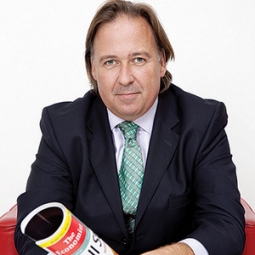Secure your place at the Digiday Publishing Summit in Vail, March 23-25

The Economist is going on 170 years old. You don’t survive the vicissitudes of the publishing world that long by latching onto every trend. One The Economist is waiting out is the “everything is free” ethos that took root online. That’s “suicide,” in the words of The Economist’s managing director for the Americas Paul Rossi.
“It makes no sense in my mind if you think a mag on a news has a val to a reader of $4.99 that you sell that to a reader digitally for 99 cents or $1.99,” he said. “I don’t understand the logic.”
Rossi spoke at The Digiday Publishing Summit last week in Deer Valley, Utah. He discussed the need to charge and the core problem of digital advertising not coming close to replacing print revenue — and the challenge that presents to publishers.
“Our readers are giving up paper,” he said. “When you ask a subscriber today how you expect to be reading The Economist in two years time, 50 percent say digitally. If you have a business where half of your customers are giving up the product where you make the majority of your revenues today, you better start changing.”
More in Media

Why more brands are rethinking influencer marketing with gamified micro-creator programs
Brands like Urban Outfitters and American Eagle are embracing a new, micro-creator-focused approach to influencer marketing. Why now?

WTF is pay per ‘demonstrated’ value in AI content licensing?
Publishers and tech companies are developing a “pay by demonstrated value” model in AI content licensing that ties compensation to usage.

The case for and against publisher content marketplaces
The debate isn’t whether publishers want marketplaces. It’s whether the economics support them.





